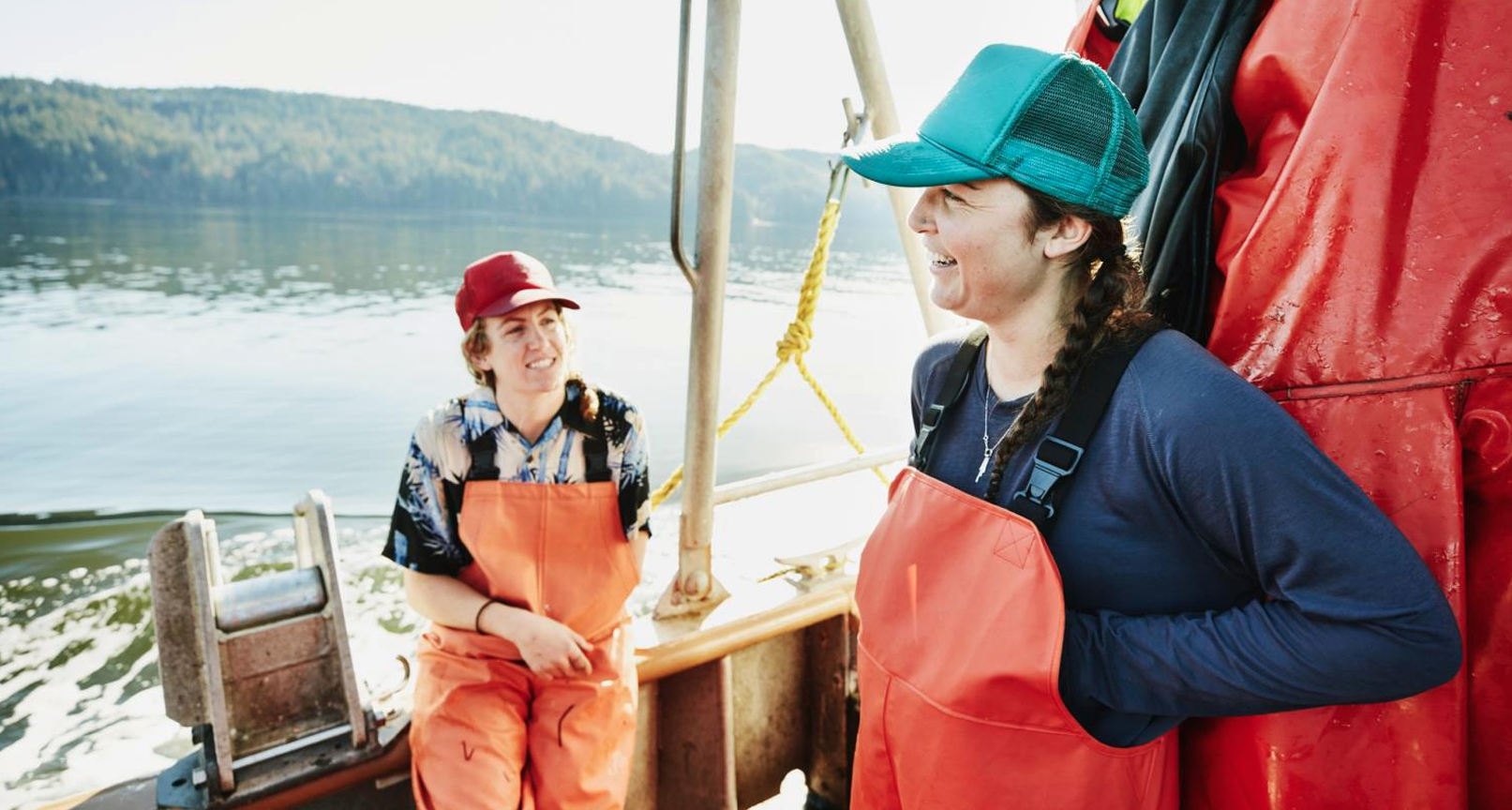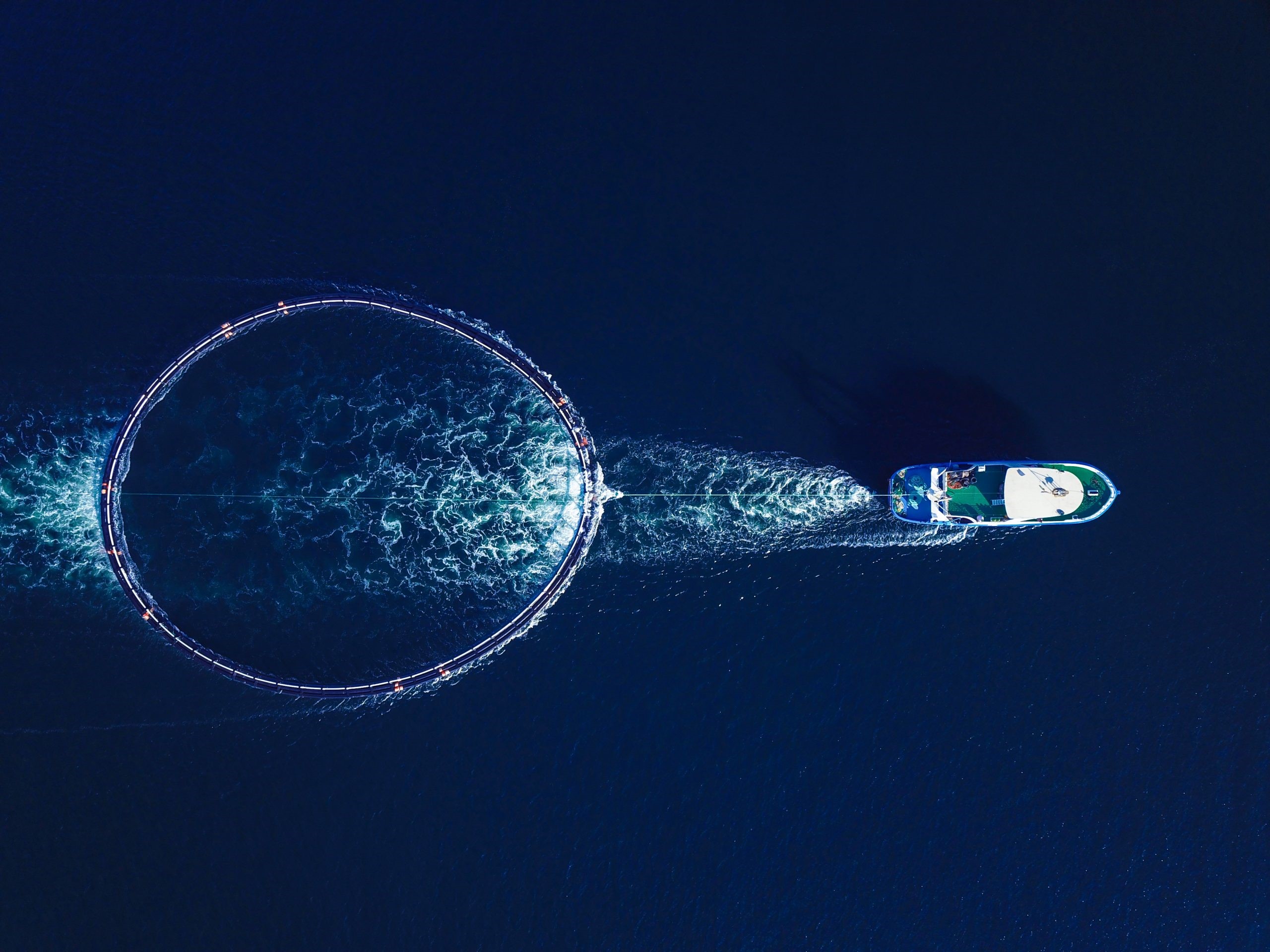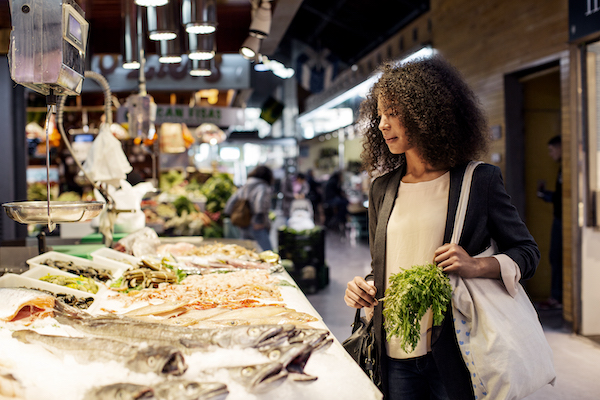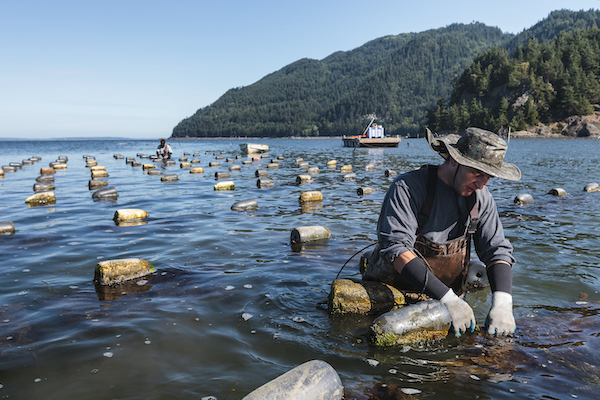Aquaculture
Aquaculture has great potential for healthy oceans and the people who depend on them. But we have to do it right.

Today, Americans import more than 90% of all the seafood we eat and more than half of that is farmed. But it often comes from countries that lack strong standards for safety, environmental protection and other issues.
The result is lost jobs in our coastal communities and reduced food security. Also lost is the opportunity to lead the way in developing practices for sustainable production of healthy seafood meeting the most stringent environmental and health standards.
While sustainable wild-capture fisheries are key, they won’t be enough to meet demand, even under the best management scenarios. A domestic aquaculture industry, including offshore finfish, has the potential to play a significant role in creating jobs, improving food security and doing so in a way that minimizes risks for the environment and maximizes benefits to coastal communities.
That’s why EDF is taking a comprehensive approach to ensure that any expansion of offshore aquaculture in the United States is done in the most environmentally sustainable way possible and prioritizes economic growth and jobs for historically disadvantaged communities — those experiencing the greatest burdens of environmental harm, economic inequality and climate change.
The risks are real

As with almost all forms of food production, aquaculture presents risks for the environment and local communities, such as equipment failures, farmed fish escapes, interaction with wild-capture fisheries and pollution from farms.
Yet modern aquaculture practices and advances in technology have come a long way toward solving some of the industry’s most significant challenges. Still, we believe more work is necessary to determine if we can sufficiently mitigate the risks, particularly for offshore aquaculture facilities.
But so are the potential benefits

Producing more domestic seafood can have a variety of benefits including good jobs and ensuring high-quality, reliable and sustainably grown food.
The United States is already benefiting from nearshore aquaculture, including seaweed and shellfish farming, that produces low-carbon, sustainable and nutritious seafood while making our oceans healthier in the process. We have the opportunity to set a high sustainability bar for offshore aquaculture as well, much like we do for wild-capture fisheries through the Magnuson-Stevens Act. By developing the know-how necessary to address the risks, we can build a strong regulatory framework for a safe, sustainable and environmentally sound industry.
We are charting a responsible path forward

For more than 50 years, EDF has partnered with scientists, fishing communities, businesses, governments, environmental NGOs, tech leaders and policymakers to protect our ocean, mitigate the impacts of climate change on marine life and develop sustainable food from the sea.
We value these partnerships and believe the path forward must be driven by science and informed by a wide range of viewpoints. With the right regulatory and policy framework, both wild-capture fisheries and offshore aquaculture can be part of a healthy ocean strategy, one that protects marine life, puts more climate-friendly sources of protein on our plates, and delivers good jobs and economic growth to a diverse array of Americans. But there is more work to do before that becomes a reality. That’s why we are:
- Researching, identifying and prioritizing key issues in offshore aquaculture that would benefit from further study, including the impacts of escapes, localized pollution concerns, environmentally responsible approaches to feed and other critical issues.
- Working with experts and policymakers to develop legislation to examine the most significant issues and help to shape a strong regulatory framework for safe, sustainable and environmentally sound aquaculture.
- Advocating for an expanding aquaculture industry that will benefit all Americans, particularly in historically disadvantaged communities — those experiencing the greatest burdens of environmental harm, economic inequality and climate change.
Get insights from our sustainable fishing experts around the world on EDFish
MEDIA CONTACT
Reggie Paros
(202) 572-3390 (office)
Additional resources
- Report
National Aquaculture Report (2024)
- Report
National Aquaculture Report (2021)
- Report
Florida Report (2021)
- Report
California Report (2021)
- Report
Aquaculture Feed (White Paper)
- Report
Managing Risks from Escaped Fish (White Paper)
- Report
Preventing and Managing Disease (White Paper)
- Report
Unleashing Advances in Science, Technology, and Artificial Intelligence to Support Sustainable Open Ocean Aquaculture in the US (White Paper)










